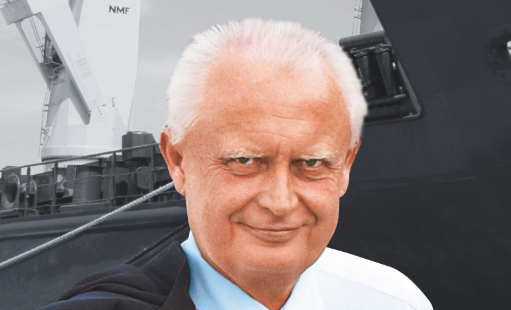EuropeMaritime CEO
BBC Chartering: “Shipping remains a low return, high risk business”

Leer: Consolidation in the heavylift sector is ongoing, according to the head of the one of the world’s top fleet managers in the sector, who says is the segment is recuperating, but “only slowly”.
Svend Andersen, ceo of BBC Chartering, says the sector is in transition and faces three major challenges: oversupply of tonnage, reforms in the banking industry and a need to innovate shipping capacity.
Not only smaller owners but also operators are being squeezed out of the market due to insufficient rates and highly leveraged financing, Andersen says. In many cases tonnage becomes available for sale as their single ship companies need to file for insolvency. Larger owners – or private equity – make use of such opportunities and buy the written off tonnage. In the case of uncompetitive tonnage which is not scrapped some banks also enter into ‘pay-as-you-earn’ agreements, which might prove to be an effective tool; however it may up the pressure on the market if used wrongly as capacity may get priced below cost effective levels.
In Maritime CEO’s opinion no other sector of shipping has been so swayed by private equity (PE) in recent years, with product tanker trades latterly challenging this assumption.
“PE investors may now own a number of ships, but operating and marketing them profitably exposes them to the same challenge faced by any other investor in the market,” says Andersen.
While not going so far as to say PE has changed the face of the sector, Andersen does think it has certainly influenced some aspects of the business – especially governance and reporting-wise. However, with regards to their asset play strategies PE investors continue to be caught in the sectors’ dynamic which gives them limited room for short-term actions, he reckons.
“Plain talking,” he says frankly, “shipping remains a low return, high risk business and it may only prove successful for long term engagements – this is valid today more than ever.”
BBC’s currently operated fleet counts about 150 vessels. More than 70% of the fleet runs under long-term agreements with vessel owners. The rest is chartered-in. With this BBC is able to react to short term demand peaks or make use of cargo opportunities on a single case basis, much like a “breathing capacity blanket”, he says.
Together with its partners BBC is currently engaged in another newbuilding project that aims at improving vessels in the important 12,500 dwt MPP / HL segment.
“Improved efficiency and environmental performance are increasingly important competitive factors in this segment,” Andersen suggests. [29/08/14]
